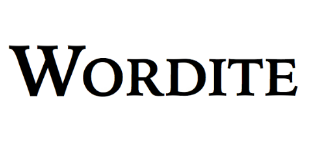dory - What does it mean?
'dory' hits on the web
You may have been searching for a specific social media @dory profile or the tag #dory
Definition of 'dory'English
Etymology 1
( Wikipedia)
Attested in ; assumed to be related to Central of Western language, perhaps ( etyl).
Noun
( dories)
(nautical) A small flat-bottomed boat with pointed or somewhat pointed ends, used for fishing both offshore and on rivers.
*
*
- He and Gerald usually challenged the rollers in a sponson canoe when Gerald was there for the weekend; or, when Lansing came down, the two took long swims seaward or cruised about in Gerald's dory , clad in their swimming-suits; and Selwyn's youth became renewed in a manner almost ridiculous
* '>citation
* '>citation
*
* '>citation
Etymology 2
From (etyl) (m), , from (etyl) (m).
Noun
(dories)
Any of several different families of large-eyed, silvery, deep-bodied, laterally compressed, and roughly discoid marine fish.
*
*
*
(obscure|cooking) A dish that has been coated or glazed with a yellow substance or with "almond milk".
=Adjective
( en-adj)
(obscure) Of a bright yellow or golden color.
* 1962' (quoting '''c. 1398 text), (Hans Kurath) & Sherman M. Kuhn, eds., ''(Middle English Dictionary) , Ann Arbor, Mich.: (University of Michigan Press), , page 1242:
- dorr?&
- 773;', '''d?r?''' adj. & n.
(obscure|cooking) Coated or glazed with a yellow substance or with "almond milk".
* c. 1430' (reprinted '''1888 ), Thomas Austin, ed., ''Two Fifteenth-century Cookery-books. Harleian ms. 279 (ab. 1430), & Harl. ms. 4016 (ab. 1450), with Extracts from Ashmole ms. 1429, Laud ms. 553, & Douce ms. 55 [Early English Text Society, Original Series; 91], London: 374760 , page 11:
- Soupes dorye'. — Take gode almaunde mylke Do þe ' dorry a-bowte.
* 1962' (quoting '''1381 text), (Hans Kurath) & Sherman M. Kuhn, eds., ''(Middle English Dictionary) , Ann Arbor, Mich.: (University of Michigan Press), , page 1242:
- dorr?&
- 773;', '''d?r?''' adj. & n. toste wyte bred and do yt in dischis, and god Almande mylk.
Etymology 3
.
Alternative forms
* doru
Noun
( dories)
A wooden pike or spear about three metres (ten feet) in length with a flat, leaf-shaped iron spearhead and a bronze butt-spike (called a sauroter), which was the main weapon of hoplites in Ancient Greece. It was not thrown, but thrust at opponents with one hand.
*
*
* 2011' (republished '''2014 as an e-book), Chris McNab, ''A History of the World in 100 Weapons , Oxford: Osprey Publishing, , page 37:
- The principal weapon of the hoplite was the dory'' spear. It was unusually long – it could measure up to 10ft (3m) in length, and weighed about 4.4lb (2kg). At one end was a broad, leaf-pattern spearhead, while at the other end was a metal spike called a ''sauroter . The purpose of the spike is much debated: it almost certainly acted as a counterbalance, making the spear easier to hold and wield; it could have been used as an improvised spear point, or for making downward attacks on the enemy's exposed feet; or it might even have been embedded in the ground to keep the spear in place.
*
References
*
Anagrams
*
|
